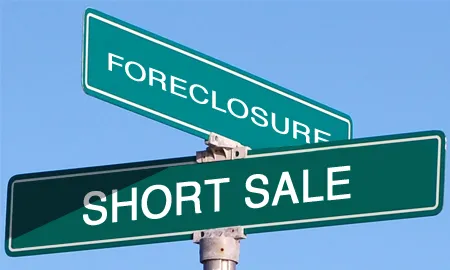Short Sale vs. Foreclosure: An In-Depth Comparison

Discover the differences between short sales and foreclosures. Understand their impacts, benefits, and drawbacks with our in-depth comparison guide.
Losing your home is a terrible and stressful experience. You may be thinking about your choices if you're having trouble making your mortgage payments due to financial hardships. Foreclosures and short sales are two frequently encountered routes for homeowners. Even though they both ultimately result in the sale of the property, the procedure, consequences, and the effect on your credit are very different.
We'll go into the specifics of short sales and foreclosures in this blog, assisting you in understanding the main differences between the two. You'll know more clearly which course of action could be best for you.
Understanding Short Sales
When a homeowner sells their house for less than the remaining mortgage sum, it's known as a short sale. This usually occurs when the owner can no longer afford the monthly payments because the property's value has dropped as a result of market conditions.
Key Points About Short Sales:
1. Initiated by the homeowner: The homeowner must take the initiative to contact their lender and ask for a short sale.
2. Lender approval: The lender must consent to the short sale and acknowledge that the sale's proceeds constitute complete payment for the mortgage.
3. Negotiation: To determine an appropriate selling price, the homeowner and their real estate agent bargain with possible purchasers.
4. Deficiency balance: The difference (deficiency) between the sale price and the mortgage balance may still be owed by the homeowner to the lender. However, state laws vary regarding the lender's ability to collect this deficiency.
5. Credit impact: Although a short sale usually has a lower credit score than a foreclosure, it still usually has a negative effect.
Understanding Foreclosure
When a homeowner fails on their mortgage, the lender can legally take back possession of the property through a process called foreclosure. The lender will eventually seize possession of the property if the homeowner is unable to make up missed payments or sell it.
Key Points About Foreclosures:
1. Initiated by the lender: The homeowner receives a notice of default from the lender, which starts the foreclosure process.
2. Legal proceedings: In order to comply with certain legal requirements, the lender must file a foreclosure action and get a court order.
3. Property auction: Usually, a public auction is held to sell the repossessed property.
4. Deficiency balance: If the selling revenues are insufficient to pay off the mortgage, the homeowner may be responsible for a deficiency balance, just like in a short sale.
Impact on credit: A foreclosure has a serious and enduring negative effect on your credit score, which makes it more challenging for you to get credit cards or loans in the future.
Comparing Short Sales and Foreclosures
Feature Short Sale Foreclosure
Initiation Homeowner Lender
Lender involvement Approval required Legal process initiated
Property sale Negotiated Auction or private sale
Deficiency balance Possible Possible
Credit impact Negative, but less severe Severe and long-lasting
Control Homeowner has more control Lender has control
Factors to Consider
Selecting between a foreclosure and a short sale is a difficult choice with long-term effects. Several things need to be taken into account:
1. Financial status: Evaluate whether you can sell the property promptly or make up any missed payments.
2. Equity in the house: Find out if you still have any equity in the house.
Credit score: Take into account how it can affect your future financial objectives and credit score.
3. State laws: Be aware of the regulations related to deficiency balances, foreclosures, and short sales in your state.
4. Financial and legal advice: To fully understand your alternatives and make well-informed decisions, speak with a financial counsellor and an attorney.
Steps to Take
It's critical to act quickly if you're having trouble maintaining your house due to financial difficulty. Here are some actions that you can do:
1. Speak with your lender: Talk to your lender about your circumstances and look into possible solutions like forbearance or loan modification.
2. Seek out expert assistance: Speak with a knowledgeable financial advisor, lawyer, and real estate agent.
3. Examine alternate housing options: Create a backup plan in case your house is taken.
Remember that minimising the negative effects of a short sale or foreclosure requires early intervention. You may improve your chances of locating the alternative that best suits your needs by being aware of the distinctions between these two choices and taking proactive measures.
This blog post is intended for informational purposes only and does not constitute legal or financial advice. It's essential to consult with professionals to address your specific situation.
- Share

